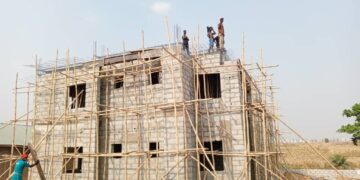Research has shown that Artificial Intelligence (AI) technology has the potential to contribute up to $15.7 trillion to the global economy by 2030, even as IT experts have disclosed strategies that African governments can deploy to accelerate the AI opportunity in the continent.
Government affairs director, Microsoft Africa, Akua Gyekye, at a virtual African AI Journalists Academy training, organised by Microsoft Africa, posited that the AI opportunity in Africa is huge, even as she disclosed that the continent can generate $1.2 trillion, representing a 5.6 per cent increase in the continent’s GDP by 2030.
However, for Africa to meet this opportunity and truly democratise AI, the director asserted that there is still much work to be done around accelerating access to internet connectivity and growing digital literacy, while urging policy makers to implement and build upon new government-led AI safety frameworks.
“When it comes to using AI safely, one of the most effective ways to accelerate progress is to build on existing governmental frameworks. Several African countries have already begun to formulate their own legal and policy frameworks and are helping to lead discussions around AI policy and strategy development on a regional, continental, and global scale, offering valuable insights for other countries looking to do the same,” she averred.
She advocated safety brakes for AI systems that control critical infrastructure adding that, “While most potential AI scenarios do not pose significant risks, it’s going to be increasingly important to identify those high-risk situations that will require ‘safety brakes’. This is particularly relevant when it comes to systems that manage or control critical infrastructure such as electricity grids, water systems, traffic systems or emergency responses. These brakes ensure systems can be quickly controlled or stopped by humans if necessary.”
While most potential AI scenarios do not pose significant risks, it’s going to be increasingly important to identify those high-risk situations that will require ‘safety brakes’, Gyekye affirmed, adding that, “This is particularly relevant when it comes to systems that manage or control critical infrastructure such as electricity grids, water systems, traffic systems or emergency responses. These brakes ensure systems can be quickly controlled or stopped by humans if necessary.”
There is also a need for the African government to develop a broader legal and regulatory framework based on the technology architecture for AI, promote transparency and ensure academic and public access to AI, she advised.
On what Microsoft Africa is doing to fast track the adoption of AI in the continent, Gyekye said, “AI has been such a central focus of Microsoft’s investments in the continent over the past 30 years. We are also keenly aware that the challenges ahead extend beyond the need for greater investment in essential infrastructure and capabilities. In fact, many public and private organisations in Africa view the risk of new safety and regulatory requirements as one of the biggest stumbling blocks to wider implementation of the technology.
“It is clear that to fast-track AI, leaders will need to work together to advance its governance more quickly. To support these efforts, we compiled a report titled “Governing AI: A Blueprint for the Future” which was spearheaded by Microsoft’s Vice Chair and President, Brad Smith. This has since been reworked to suit the needs of different countries and regions and earlier this year we launched, “AI in Africa: Meeting the Opportunity”. This whitepaper explores the five key focus areas that can contribute positively to the work ahead,” she disclosed.










